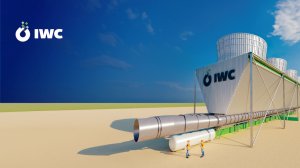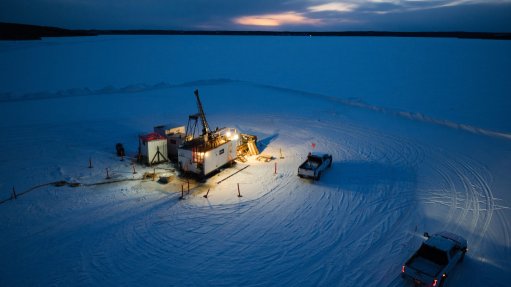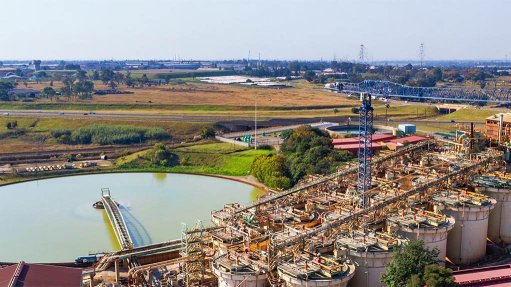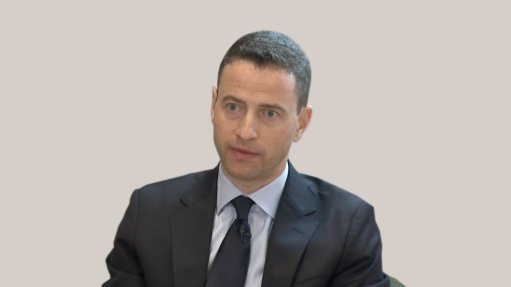Experts highlight the potential of recoverable energy power generation
Significant additional clean electricity can be generated economically by combining dry and wet cooling technologies at power plants, Industrial Water Cooling (IWC) consulting and research and development manager Dr Hanno Reuter, who is also an extraordinary professor at Stellenbosch University, has said.
In a webinar discussion hosted by Creamer Media on October 11, he noted that the combination of recoverable, renewable and conventional energy power generation was a good solution for the power generation industry worldwide.
Reuter asserted that recoverable energy power generation was the cleanest and most economical form of power generation, while also highlighting the pioneering role that South Africa had played, and continued to play, in the development of air-cooled condenser (ACC) technology.
Maximising the performance of ACCs is important for enhancing power generation in steam-based power plants, as ACCs are instrumental in condensing turbine exhaust steam directly within air-cooled finned-tube heat exchangers, a technology of which various aspects were originally developed at Stellenbosch University.
Compared with traditional wet-cooling towers with identical boiler design, ACCs offer a significant advantage. They consume virtually no water, in stark contrast to the 1.5 ℓ/kWh to 2.5 ℓ/kWh of water typically consumed by cooling towers.
The reduction in water use is particularly appealing in areas where water availability is constrained.
However, it should be noted that ACCs may produce significantly less power output – up to 10% less under standard conditions and up to 20% less when subjected to elevated ambient temperatures.
Further, Reuter explained that their efficiency may decline by up to 35% under extreme conditions involving high ambient temperatures and wind speeds.
To optimise ACC performance, potential enhancements could include options such as making use of induced draft ACCs, as opposed to forced draft ACCs; the incorporation of hybrid (dry/wet) dephlegmator (HDWD) modules; plant-specific computational fluid dynamics (CFD) studies; adherence to the latest design principles; rigorous quality control for finned tubes through frequent performance testing; and the maximisation of fan efficiency via thorough fan testing.
Implementing an online tube cleaning system, installing wind-mitigating devices, adopting variable-speed drives and deploying digital twin online monitoring systems are also viable measures to ensure ACCs operate at their peak.
Reuter said that, for power stations, retrofitting offers a valuable avenue for improvement. Key retrofitting measures encompass boosting fan efficiency through replacements, increasing installed fan motor power, introducing wind-mitigating technologies, adopting tube cleaning systems, expanding the number of ACC fan modules, integrating HDWD modules and outfitting online monitoring systems with a digital twin.
Additionally, the installation of a fogging system for adiabatic cooling of inlet air presents another, less recommended, strategy to enhance power generation and operational efficiency.
In a panel discussion as part of the webinar, he was joined by researchers from the Department of Mechanical and Mechatronic Engineering at Stellenbosch University: Associate Professor and head of the thermofluids division Mike Owen; Professor and head of department Johan van der Spuy; and Associate Professor Chris Meyer.
Reuter stated that Owen, Van der Spuy and Meyer had all been involved in research related to recoverable energy.
He explained that by retrofitting new-build or existing renewable and conventional thermal power plants with the latest ACC technology and incorporating dry/wet cooling to increase power output, this could be seen as the equivalent of building a new power plant with zero greenhouse-gas emissions, perhaps consuming some water but with much lower capital expenditure and life-cycle costs than new conventional and renewable energy power plants.
He asked the question how recoverable energy power generation could be incentivised and made obligatory.
Owen agreed with Reuter that recoverable energy was a clean solution, adding that there were definitely conditions under which such systems offered favourable economic returns.
Van der Spuy emphasised that the benefit of recoverable energy was that the efficiency of power plants could be improved, enabling an increase in power output, but without increasing emissions from the plant.
Meyer commented that recoverable energy represented “low-hanging fruit”.
Article Enquiry
Email Article
Save Article
Feedback
To advertise email advertising@creamermedia.co.za or click here
Press Office
Announcements
What's On
Subscribe to improve your user experience...
Option 1 (equivalent of R125 a month):
Receive a weekly copy of Creamer Media's Engineering News & Mining Weekly magazine
(print copy for those in South Africa and e-magazine for those outside of South Africa)
Receive daily email newsletters
Access to full search results
Access archive of magazine back copies
Access to Projects in Progress
Access to ONE Research Report of your choice in PDF format
Option 2 (equivalent of R375 a month):
All benefits from Option 1
PLUS
Access to Creamer Media's Research Channel Africa for ALL Research Reports, in PDF format, on various industrial and mining sectors
including Electricity; Water; Energy Transition; Hydrogen; Roads, Rail and Ports; Coal; Gold; Platinum; Battery Metals; etc.
Already a subscriber?
Forgotten your password?
Receive weekly copy of Creamer Media's Engineering News & Mining Weekly magazine (print copy for those in South Africa and e-magazine for those outside of South Africa)
➕
Recieve daily email newsletters
➕
Access to full search results
➕
Access archive of magazine back copies
➕
Access to Projects in Progress
➕
Access to ONE Research Report of your choice in PDF format
RESEARCH CHANNEL AFRICA
R4500 (equivalent of R375 a month)
SUBSCRIBEAll benefits from Option 1
➕
Access to Creamer Media's Research Channel Africa for ALL Research Reports on various industrial and mining sectors, in PDF format, including on:
Electricity
➕
Water
➕
Energy Transition
➕
Hydrogen
➕
Roads, Rail and Ports
➕
Coal
➕
Gold
➕
Platinum
➕
Battery Metals
➕
etc.
Receive all benefits from Option 1 or Option 2 delivered to numerous people at your company
➕
Multiple User names and Passwords for simultaneous log-ins
➕
Intranet integration access to all in your organisation




















